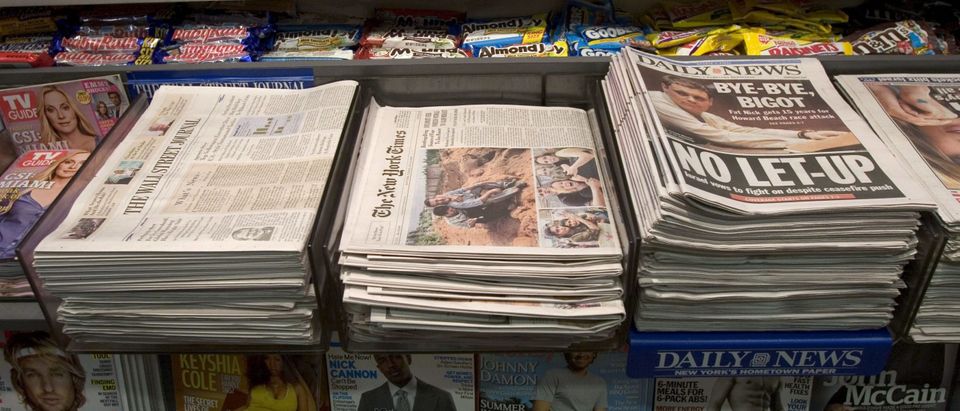Several media narratives such as the “Russian bounties” story, the false reports about former President Donald Trump asking politicians to “find the fraud” in elections, and claims that the coronavirus lab leak theory was a “conspiracy theory,” have repeatedly fallen apart, leaving the public with little confidence about who they should trust.
The New York Times initially broke a now-discredited story claiming that Russia offered bounties to the Taliban to kill American troops stationed in Afghanistan during the summer of 2020. In April, the Times issued a report saying that the intelligence community is split about the issue, and President Joe Biden’s administration later admitted that the intelligence community has “low to moderate” confidence in the claims.
After the initial report broke, then-president Trump downplayed the claims and said he had not been briefed on the issue. He was attacked by Biden and now-Vice President Kamala Harris for not bringing up the issue in calls to Russian President Vladimir Putin. (RELATED: Psaki Offers No Apology For Biden’s Attacks On Trump Over Discredited Russian Bounty Report)
I’m really sorry @charlie_savage‘s huge CIA scoop about Russian bounties — that misled so many people for so long in very dangerous ways — fell apart. But attacking me won’t save it. Read here about who actually debunked it. CIA isn’t a great source:https://t.co/RocXcmiUEQ https://t.co/EZb8ZHFB5j
— Glenn Greenwald (@ggreenwald) May 14, 2021
When fact-checking Trump’s interview with Axios reporter Jonathan Swan on July 30, the Washington Post gave Trump “four Pinocchios” for saying that “intelligence” didn’t think the allegations in the Times report were “real.” Fact-checker Salvador Rizzo accused the then-president of trying to “put the cat back in the bag.”
The Washington Post also published a report in January claiming that Trump told the chief investigator of the Georgia secretary of state’s office, Frances Watson, to “find the fraud” in the 2020 election. The Post also claimed that Trump told Watson that she would be a “national hero” if she did. Published audio of the phone call, however, proved that the quotes were not real.
While Trump did tell Watson that she would be “praised” if the “right answer” was revealed, the initial quotes were incorrect and the Post issued a lengthy correction.
“Correction: Two months after publication of this story, the Georgia secretary of state released an audio recording of President Donald Trump’s December phone call with the state’s top elections investigator,” the correction said. “The recording revealed that The Post misquoted Trump’s comments on the call, based on information provided by a source. Trump did not tell the investigator to ‘find the fraud’ or say she would be ‘a national hero’ if she did so.”
“Instead, Trump urged the investigator to scrutinize ballots in Fulton County, Ga., asserting she would find ‘dishonesty’ there,” the correction continued. “He also told her that she had ‘the most important job in the country right now.'”
Mainstream media also attacked anyone who suggested that the coronavirus pandemic could have come from a lab in Wuhan, China.
A now-retracted PolitiFact fact-check from September of 2020 called a claim from a Hong Kong virologist who said that coronavirus could have been made in a lab a “debunked conspiracy theory.”
“The claim is inaccurate and ridiculous,” the fact-check said. “We rate it Pants on Fire!” An editor’s note on the fact-check later said that the “assertion is now more widely disputed.”
Dozens of outlets also repeated conclusions from a World Health Organization (WHO) report despite warnings that the Chinese government heavily influenced the report and its conclusions. The document claimed that coronavirus came from animals and not a lab leak.
The Associated Press broke the story about the document, and while they included concerns about the document from Secretary of State Antony Blinken, the outlet largely took the report’s conclusions at face value. It also described the idea that coronavirus leaked from a lab as “a speculative theory that was promoted by” Trump.
ABC News, The Washington Post, Voice of America, U.S. News, the Boston Herald, NCB News and other publications repeated the Associated Press’ report or the WHO’s claims.
Meanwhile, trust in the media has declined. While most Democrats still trust the media, that trust has only continued to go down in recent months as more stories get discredited.


